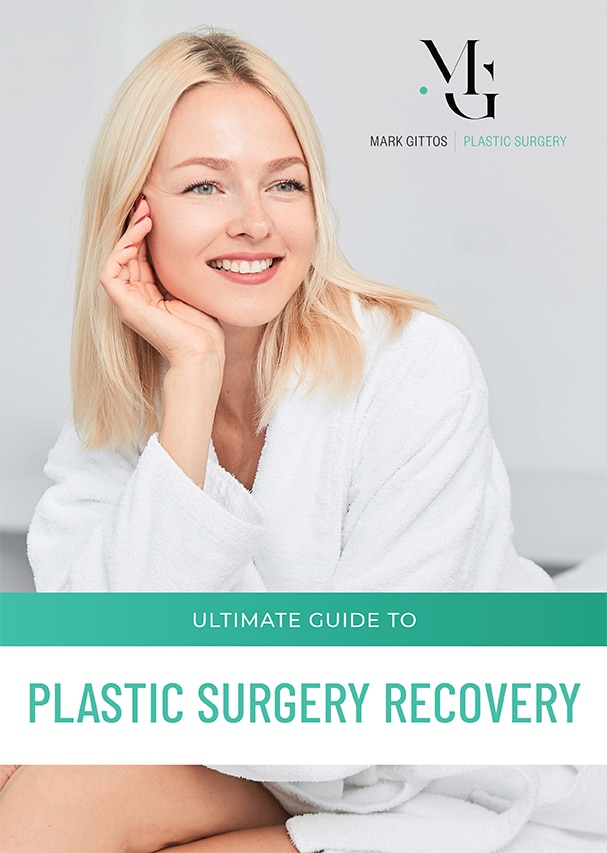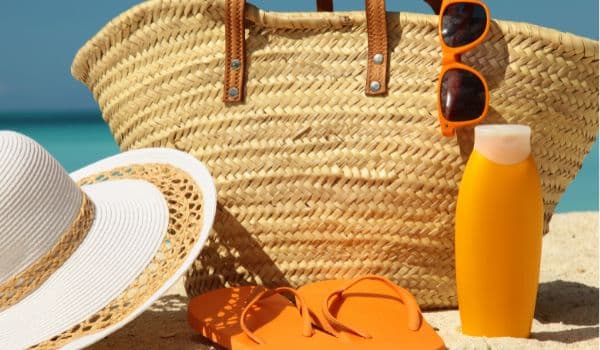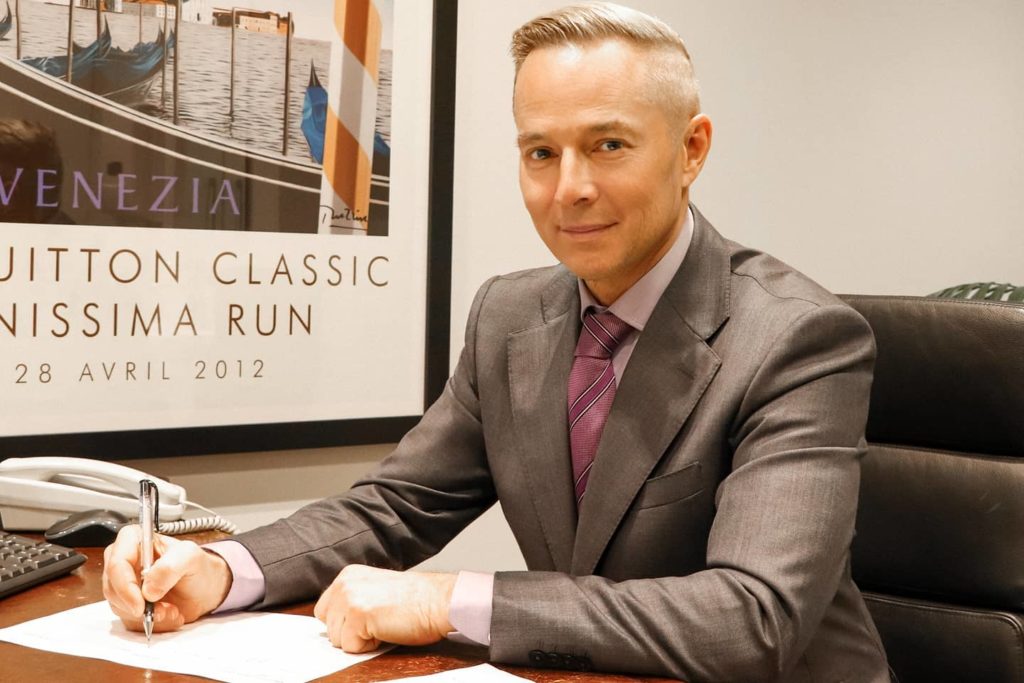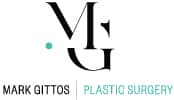How Tanning Can Impact Your Cosmetic Surgery Scars
If you had cosmetic surgery like breast augmentation or a tummy tuck, you’ll probably think of ways to reduce your surgical scars and improve their texture as well as appearance. While there are minimally invasive non-surgical procedures that can help with prominent or keloid scars, they may be expensive and will require additional downtime. In order to improve the appearance of cosmetic surgery scars, some patients resort to tanning as a solution – but is it safe or recommended?
Dr Mark Gittos is an experienced and talented Plastic Surgeon in New Zealand who has helped hundreds of patients achieve their aesthetic goals.
Download Dr Mark Gittos’ Guide to Plastic Surgery Recovery

How Do Scars Develop?
Scars are a natural part of your body’s regeneration process. Most injuries result in scarring which can alter the appearance of the skin. But how do scars form? To understand this mechanism, you must first know the different phases of the wound healing process:
- Inflammatory phase: When the deep, thick layer of your skin known as the dermis is damaged, the body signals the blood vessels in the wound to contract and stimulates the formation of a blood clot. Once the bleeding has stopped, the blood vessels widen to allow white blood cells to fight infection and other essential cells to repair the damaged tissues. As a result, the wound area starts to become red, swollen, warm, and painful. After a few days, a scab (brown, dry crust) forms on top of the injured area to protect the wound.
- Proliferation phase: This phase immediately occurs after the inflammatory phase. During this period, granulating tissue composed of collagen (the skin’s main structural protein) migrates at the site of the wound and fills in spaces. In addition, new blood vessels also form in the newly-built tissue which in turn provides oxygen and nutrients to the cells and eliminates waste products from the healing tissues. At this stage, the wound starts to close and the edges are gradually pulled together, resulting in a smaller wound size.
- Maturation phase: After several weeks, the maturation phase begins and is considered the longest and final phase. During this time, the blood vessels that are not needed by the body starts to thin out and is replaced by a new and stronger type of collagen. Over time, the wound continues to contract and the damaged area is permanently sealed with collagen scar tissue. The area then becomes rough, slightly elevated, and unpleasant to look at.
How Tanning Affects Your Cosmetic Surgery Scars
Normally, cosmetic surgery scars are hypopigmented once the maturation phase is complete. However, a study in darker-pigmented and lighter-pigmented patients who had cosmetic surgery scars found that excessive sun exposure can lead to hyperpigmentation of the scars.
Other studies also found that prolonged sunlight exposure during the wound healing phase among patients with surgical scars can significantly increase the risk of scar pigmentation. These results indicate that reducing sunlight exposure may prevent hyperpigmentation of the healing wound.
With these studies, it can be concluded that tanning through sun exposure or spray tans can adversely affect the appearance of surgical scars and should be avoided.
Protect Your Cosmetic Surgery Scars from UV Rays

After any cosmetic procedure, it is absolutely critical to protect your healing wounds against the detrimental effects of the sun and tanning beds. The following are some self-help strategies that you can employ during your recovery period to prevent hyperpigmentation of your surgical scars:
- Don’t go outside during the day if not necessary: aside from hyperpigmentation, prolonged sun exposure can cause adverse skin conditions such as itchy and irritated skin which can delay the healing of incision lines
- Wear protective clothing that prevents exposure of the surgical wound: using long sleeves, pants, or other thick clothing prevents UV rays from reaching the healing wound
- Use sunscreens with SPF 30 or higher: this product is good for your surgical scars as it prevents the UV rays from penetrating your skin. Sunscreens with SPF 30 or higher can block 97% of the sun’s ultraviolet rays
- Never use spray tan on your surgical incision lines: the surgical wound may react differently or may reject the colour of the spray tan product that you are using. Doing so can cause the surgical scar to have uneven colour compared with the surrounding tissue
- Don’t use tanning beds: tanning beds do not only cause hyperpigmentation of surgical scars but also damages your skin cells, resulting in visible signs of skin ageing. Furthermore, the use of tanning beds is associated with a higher risk of skin cancer
Are you willing to undergo cosmetic surgery but are having second thoughts due to the possibility of surgical scars? If so, consult with a plastic surgeon to gain a better understanding of your desired procedure and its related outcomes.
Further Reading about Cosmetic Surgery
- Smoking and Plastic Surgery
- Recovery after Plastic Surgery
- Telling your partner about getting plastic surgery
Medical References
- A Review of Scar Scales and Scar Measuring Devices
- Updated international clinical recommendations on scar management
- A randomized, placebo-controlled, double-blind, prospective clinical trial of silicone gel in prevention of hypertrophic scar development in median sternotomy wound
- Tanning and your skin
Finding the Best Breast Augmentation Surgeon in Auckland
For many women in New Zealand, having breast augmentation is a life-changing experience. There are many qualified plastic surgeons, but it is always best to find one who is experienced in breast augmentation procedures. Breast implants come in many different shapes and sizes, and there are various insertion techniques, so find a reputable practitioner who can give good advice on the right implants for you. Before considering breast implants, it is wise to find a surgeon who is also up to date with new non-invasive techniques for boosting the breasts, so you can investigate all the options before deciding on permanent surgical implants.
Dr Gittos has a current FRACS membership and significant breast surgery experience. You should consider these factors when searching for the best Plastic Surgeon in Auckland. Always look for an experienced surgeon that you feel comfortable with and get a second opinion.
About Dr Mark Gittos FRACS (Plast) – New Zealand Plastic Surgeon
Practice locations in Herne Bay Auckland, Northland and Bay of Plenty – Kerikeri, Whangarei, New Plymouth & Tauranga
Dr Mark Gittos is a leading Specialist Plastic Surgeon and operates a practice in Herne Bay, Auckland and in the UK. The practice focuses on both surgical and non-surgical procedures, each designed to help restore, improve or change a physical characteristic or problem. The first step in every case is to talk through your personal requirements and explore all the options, before deciding on the most effective solution.
Dr Mark Gittos offers high quality, natural-looking cosmetic surgery results and is highly experienced in Breast, Body and Face Surgery having performed over 4000 Surgeries in the last 26 years. With worldwide expertise Dr Gittos is an expert in breast, face and body surgery for men & women.
Naturally, before any treatment is begun, we will explain clearly the advantages and risk factors; so that you have the information you need to make an informed decision that is best for you. Visit the practice to find out more.

NEXT STEPS
Please NOTE: Dr Gittos only performs surgery on non-smoker patients with a BMI less than 30. To check your BMI please visit the NZ Heart Foundation website. For help giving up smoking before surgery visit the Smoke Free website
Do your Research
- Read the Website and Blogs relevant to your procedure
- Browse our Frequently Asked Questions including how to choose a Surgeon for your procedure
- Download and read the FREE Guides to Surgery
What to Bring to your Plastic Surgeon Consultation
- Bring a friend or relative to help discuss the information and your choices
- Take lots of notes and read the documents provided thoroughly
- Dress in simple clothes as you may need to undress for examination
- Bring your medical referral and any relevant medical documents or test results
Book your Initial Surgery Consultation
- A Referral from your GP or specialist is helpful but NOT essential – you can have a consultation without a GP Referral
- Email us or Call on 09 529 5352 to arrange your surgeon consultation appointment.
- Book a consultation with Dr Gittos by paying the Consultation Fee – $350 incl GST
Traveling for Surgery? – Consider post-surgery luxury recovery in a Hotel with LuxeCare
Please contact us to arrange to book a consultation with our Specialist Plastic Surgeon or to speak with our Patient Care Advisor.
Send an enquiry form today or phone 09 529 5352 during Clinic Hours
